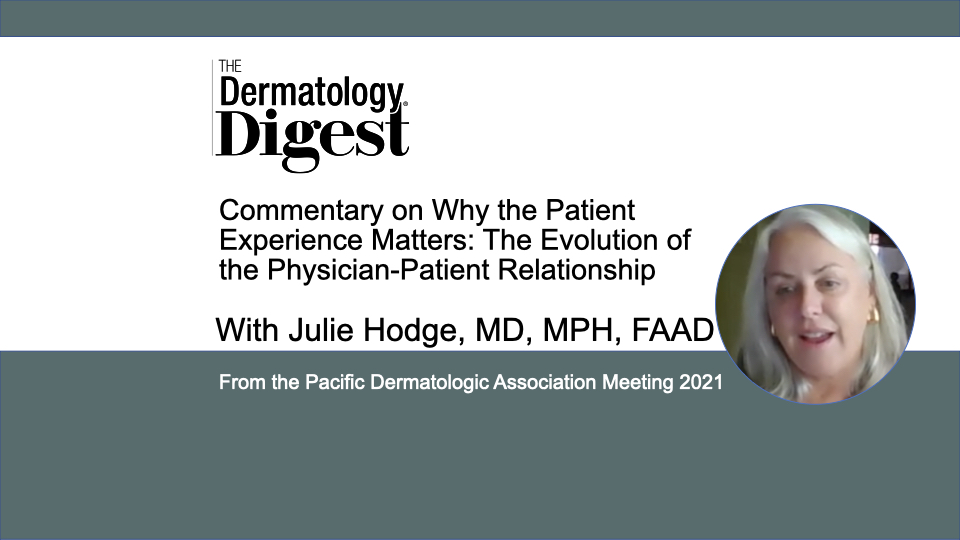Dr. Julie Hodge discusses balancing the benefits of technology with the continued need for human connection.
Julie Hodge, MD, MPH, FAAD, is Volunteer Associate Clinical Professor at UC Irvine and a dermatologist in private practice at Hodge Dermatology in Fullerton, California.
“Physicians and patients need to be [partners] to navigate the healthcare landscape, and we just need to make sure that technology is our tool and we don’t forget the human connection because biology has not evolved nearly as fast as the technology, which has gone up exponentially,” said Julie Hodge, MD, MPH, FAAD.
While advancements in artificial intelligence offer benefits to both physician and patient, it is incumbent upon dermatologists to find a way to bridge the gap and still deliver a personal and positive patient experience, according to Dr. Hodge.
Dr. Hodge, a Fullerton, California-based dermatologist in private practice, presented “Why the Patient Experience Matters: Evolution of the Physician-Patient Relationship,” at this year’s Pacific Dermatologic Association annual meeting.
“I think that positive patient experience leads to a better patient-physician relationship and that leads to better outcomes,” said Dr. Hodge, who emphasized that human connection is an important part of that experience.
While the technology behind Telehealth has helped practicing physicians continue to deliver healthcare throughout the pandemic, it has also revealed inherent limitations.
“We all of a sudden were relying only on technology and we really didn’t have any real in-person contact… that is much different in an artificial environment than in a social context. I think that has allowed us to now refocus the lens on how important that in-person, direct human contact is for for our well being.”
Dr. Hodge believes TLC—Trust, Listening, and Compassion—is one key to fostering that patient relationship.
“One of the challenges with Telehealth is it’s so hard to really feel like we’re actually understanding each other… [it’s] very important that that we understand that and try to relate to our patients.”
One thing dermatologists can do is to be involved with the development of technology, said Dr. Hodge, effectively transforming artificial to “augmented” intelligence.
“Physicians need to be the drivers of the technology. We need to stay involved in the developments that are going on. We need to participate in the development of the software… this newer concept of ‘augmented intelligence’… [is] something that helps us, but we have to remember that that’s a tool.”


